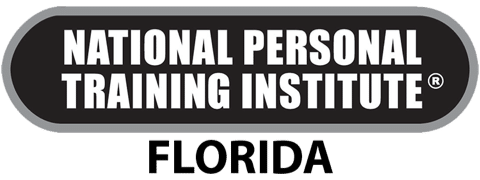
Financial aid (may be available)

Financial aid (may be available)

Financial aid (may be available)

Financial aid (may be available)

$4,750 to start
$9,500 total

Financial aid (may be available)

$6,450 to start
$12,900 total
No cost info
$23,297 total
$4,299 total
$16 total
$600 total
$1,597 total
$649 total
No cost info
$1,597 total
$1,949 total
Are you interested in a career in nutrition and want to find the best Applied Nutrition classes near you in Orlando? Look no further! In this blog post, we will explore what Applied Nutrition is, the training requirements, what to look for in a class, what to expect from the day-to-day class, the certification process, how to find related jobs, and what other classes you can take after becoming an Applied Nutrition specialist.
Applied Nutrition is a field that focuses on the application of nutrition principles to promote health and prevent disease. It involves using evidence-based strategies to develop personalized nutrition plans for individuals and communities. Applied Nutrition specialists work in a variety of settings, including hospitals, clinics, community health centers, and private practices.

To become an Applied Nutrition specialist, you will need to complete a training program in nutrition. These programs typically include coursework in nutrition science, food science, biochemistry, anatomy, physiology, and psychology. Some programs may also require hands-on experience in a clinical or community setting.
When looking for a training program, it's important to consider the following:
When searching for Applied Nutrition classes in Orlando, there are a few key factors to consider:
In an Applied Nutrition class, you can expect to learn about a wide range of topics related to nutrition and health. Some of the topics that may be covered include:
Classes may be a combination of lectures, discussions, group activities, and hands-on practice. You may also have the opportunity to work with real clients or participate in community health initiatives to gain practical experience.
After completing your Applied Nutrition training program, you may choose to pursue certification to enhance your credentials and demonstrate your expertise. There are several certification options available, such as the Certified Nutrition Specialist (CNS) or the Registered Dietitian Nutritionist (RDN).
The certification process typically involves meeting specific education and experience requirements, passing a certification exam, and maintaining continuing education credits to stay up-to-date with the latest research and practices in the field.
Once you have completed your Applied Nutrition training and obtained any necessary certifications, you will be ready to start your career. There are several resources you can use to find related job opportunities:
Once you have established a career as an Applied Nutrition specialist, you may choose to expand your knowledge and skills by taking additional classes. Some classes that may complement your Applied Nutrition training include:
By taking additional classes, you can broaden your expertise and open up new career opportunities in specialized areas of nutrition.
If you are passionate about nutrition and helping others live healthier lives, pursuing a career in Applied Nutrition may be the right path for you. By completing a training program, obtaining certifications, and continuously expanding your knowledge and skills, you can build a successful career in this rewarding field.
Remember, Dreambound is a valuable resource to help you find the best Applied Nutrition classes near you in Orlando and explore other vocational training programs. Take advantage of the resources available to you and embark on your journey to becoming an Applied Nutrition specialist!
Dreambound is your go-to for city-specific guides if you're starting in this field. And if you're in another location or considering a change, we've written several others as well.
Weighing the possibilities of a career shift? Dreambound has written many extensive guides to guide you in making informed decisions. Check out some of these resources below:
Dreambound's platform allows prospective students to find the right educational program for them through searching, filtering, and connecting with our extensive selection of career & technical education partners.
Dreambound has over 70 programs across healthcare, technology, business, and industrial trades. This includes programs such as Medical Billing, Cybersecurity, and welding.
Some of our schools offer financial aid for those who qualify. Many others offer payment plans, where you can pay the cost of class over time.
Yes, Dreambound offers many online programs. On Dreambound's search, you can filter by online, in-person, and hybrid (part online, part in-person).
Dreambound is completely free for you to use! We are supported by schools and organizations who pay to advertise on our website, so we can offer all of our career resources for free.